Warning: the comparison test you’re about to read involves a Land Rover. It therefore includes obligatory photographs taken off-road, in a Welsh limestone quarry known well to staffers of this magazine, for which the Autocar road test desk and photography department send their apologies. In this line of work, some visual clichés are simply too well-worn to resist.
This particular cliché should certainly be acknowledged for what it is, though: a bit of artistic licence. Because while the second-generation Range Rover Evoque may be all-new and all-important for its creator, it’s every inch a compact SUV and not an ‘off-roader’. As such cars go, the Evoque is capable, rugged and versatile, but it’s very much an everyday road car. You know this. We know this. Yet while picturing it abandoned on double yellows, astride the kerb and hazards ablaze outside a primary school might have been more appropriate, such a photograph wouldn’t have looked half as pretty or been as much fun in the making.
Our story so far on the new Evoque has brought us through early ride-along and international press launch and, very recently, UK first drive. Now, though, a chance to find out just how good this rather important Evoque is judged against its toughest opponents, two of which we are about to describe and rate it in specific reference to: the second-generation Audi Q3, which – roll up, roll up – is also new this year, and the Volvo XC40, which is Autocar’s incumbent compact SUV class favourite and without which these proceedings would otherwise be largely irrelevant.
But, well, yes, you’re right: as it happens, there are four cars in the photograph you’ve been glancing at for the past minute or so. For reasons of general usefulness, fairness and accuracy, however, what you’re about to read will actually be a slightly truncated three-car comparison with an addendum on an interesting if unconventional new Lexus – the Lexus UX 250h – which, as it turns out, isn’t really a compact SUV at all. It might, though, provide welcome cause to wonder whether you need such a car quite as much as you thought you did.


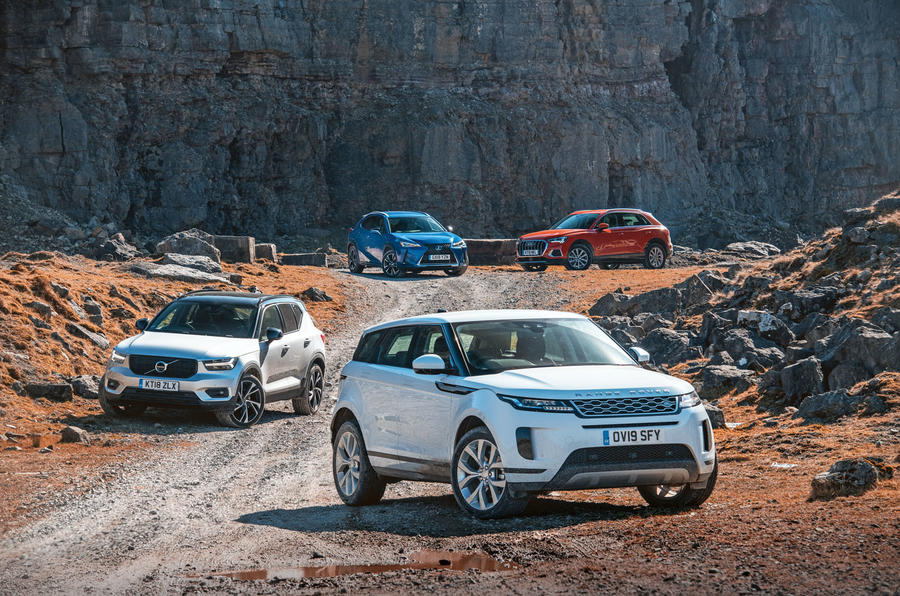



















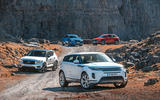























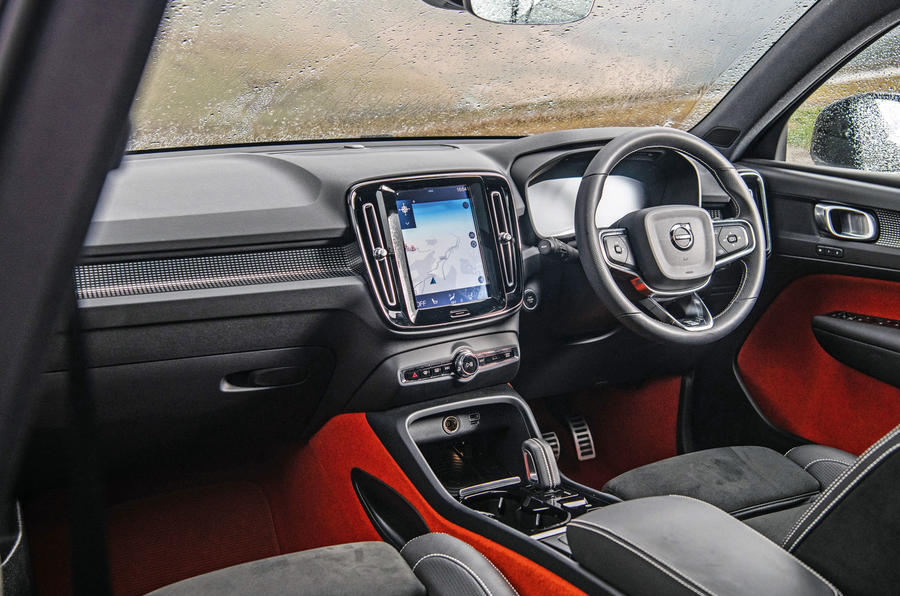

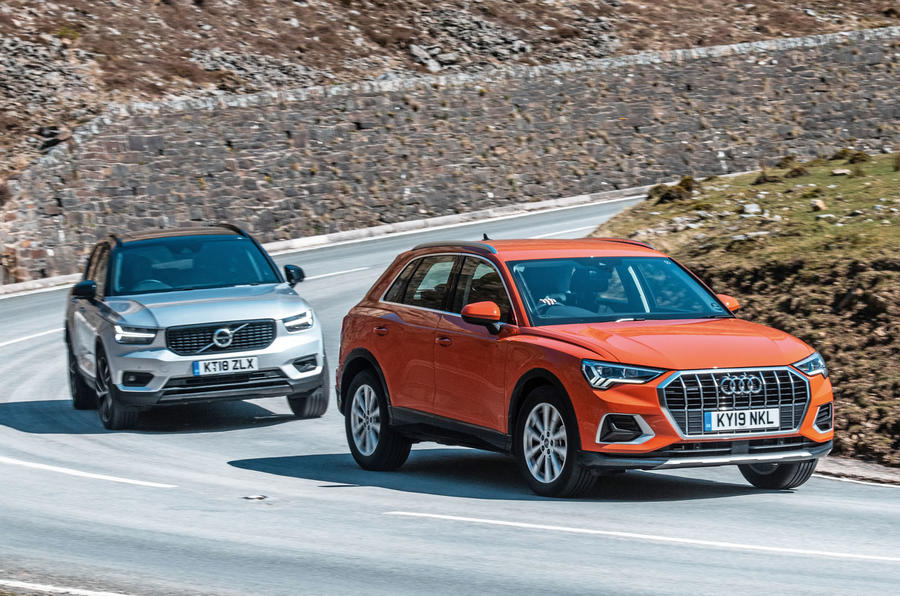
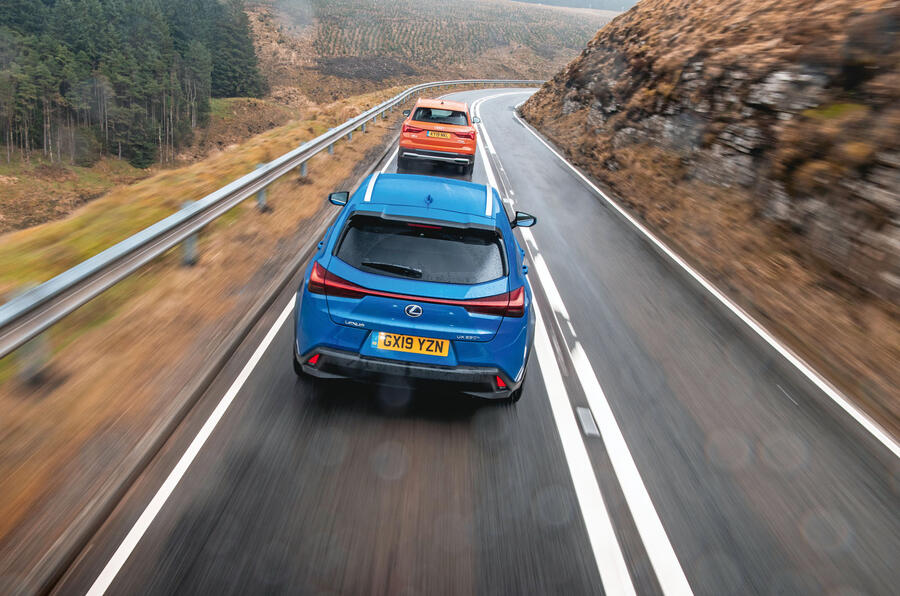








Join the debate
Add your comment
Well I've sat in an Evoque
The words that 'did' spring to mind were 'look at that horrid steering wheel' and 'why does the info screen have a motor to drive it forward? Why not design it so it isn't pointing at the sunroof in the first place...' among others.
Cobnapint wrote:
Hehehehe!
Now THAT's comedy!
Rediculous article
Rediculous article
Range rover against major rivals?
Wheres the landcruiser?
You people never discuss long term ownership, the Rangerover will be a pile of crap within years let alone anything still working on it.
Totally laughable and a joke as any Australian farmer who makes his off road SUV work for a living will confirm.
As for the RR fanboy Jonboy ( joke ) we laugh every time he posts anything concerning his toy
Evoque
Not as pretty as the first gen, still too heavy ( lol @ commenters saying it's because of off-road prowess, as if that's what people use Evoques for ), still too expensive. I'd take a XC40, thanks.
The Q3 is pretty great for an Audi, and even though interior quality should be better taking into consideration what you pay for, i think i'd take it over the Evoque too.
The Lexus looks like like it belongs to a different ( lower ) segment IRL, and it may end up selling better than the CT ( it probably is a better car overall ), but man... why would anyone buy one.
tuga wrote:
Actually if I was to buy an suv, which I'm not, especially at these prices, I would go for the lexus, I like that it is different, petrol hybrid over diesel suits my low annual mileage, that it is equal to or better than the others for quality is appealing and it is described as driving very well with only the usual high engine speed cvt criticism against it. That it isnt as spacious as the rest doesn't bother me as I have run a supermini as a family car for years but that it is usefully cheaper to buy and easily as good with regard to premium quality feel and would also be cheaper for me to run means for me it would be my choice.
As for the styling, the evoque is probably the best looking followed by the volvo, the audi is drab as audis always are and the lexus is different enough to appeal..